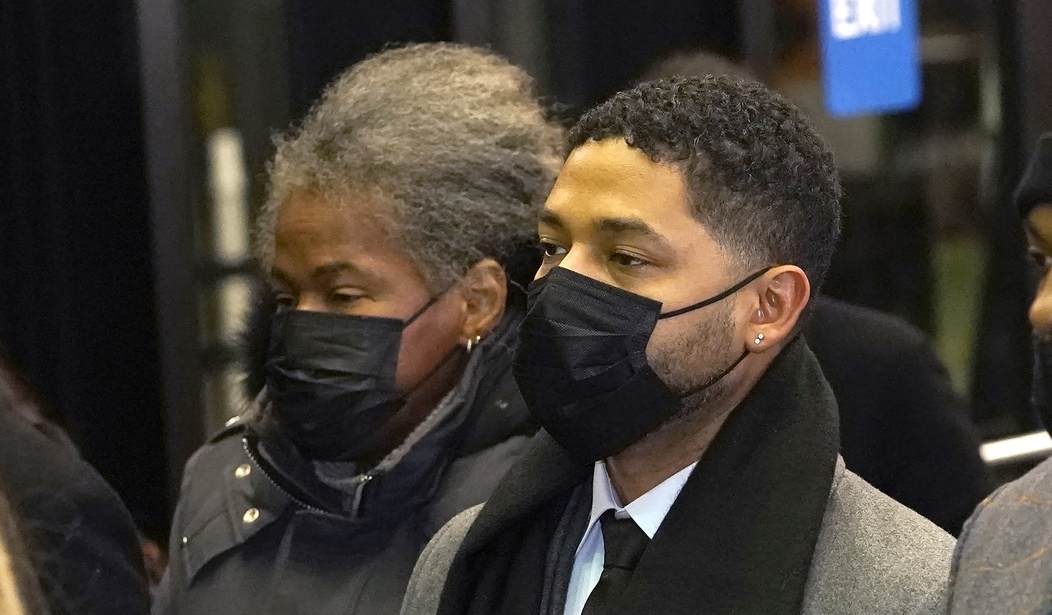This week, I ran across a recent ESPN tweet: "Last year, a noose was found in Bubba Wallace's stall at Talladega Superspeedway. The next day, the NASCAR community stood with him in unity ... " What ESPN didn't mention in the tweet was that the FBI investigation of the event found that the supposed noose was a garage pull rope that had been placed there months before -- long before Wallace was assigned to the garage. It was not a noose that targeted Wallace but a way to grab a rope and pull more easily. The tweet is misleading and dangerous -- misleading because it does not contain all the relevant information, and dangerous because it fosters fear and polarization in our country.
Last week, actor Jussie Smollett was found guilty of five felony counts of disorderly conduct. For those who can remember back to just before the pandemic, Smollett claimed in January 2019 that he was a victim of a hate crime. The uproar was immediate, and many observers condemned not only the supposed perpetrators but also then-President Donald Trump and his followers based on their underlying belief that Trump and his supporters had created an environment that made such an attack possible. Later, it came out that the supposed hate crime had been staged by Smollett himself.
These are but two examples of fast-moving but inaccurate news reports. They made me wonder what the results of spreading inaccurate stories could be -- especially for college students, who don't have decades of experience separating fact from fiction. A recent national poll conducted by Generation Lab (conducted Nov. 18 to Nov. 22 among 850 college students, +/- 3.4 points) reveals that over half of females and Democrats would not date someone who supported the opposing presidential candidate, while about one-third of females and Democrats would not be friends with someone who did so. They are prejudging the person based on who they supported for president without knowing the person as a person. Simply put, it appears as though some believe that if you agree with me, you're a good person, but if you disagree with me, you're a bad person.
In the poll, Democrats were more than twice as likely as Republicans to say they would not date someone who supported the opposing party's presidential candidate and seven times as likely not to befriend someone in the opposing political party.
Recommended
When asked, "Would you go out on a date with someone that voted for the opposing presidential candidate?" half said "definitely" (18%) or "probably" (32%), while the other half responded "probably not" (32%) or "definitely not" (18%).
Females were more likely to respond "probably not" (36%) or "definitely not" (24%) than males (25% and 8%, respectively). Democrats were more than twice as likely as Republicans to respond that they would not date someone who supported the opposing party's candidate ("probably not" at 41%; "definitely not" at 30%) than Republicans (24% and 7%, respectively).
When asked, "Would you be friends with someone that voted for the opposing presidential candidate?" the response overall was "definitely" (41%) or "probably" (36%), while fewer than one-third said "probably not" (17%) or "definitely not" (6%). Females were more likely to respond "probably not" (23%) or "definitely not" (7%) than males, who responded "probably not" (7%) and "definitely not" (4%).
Democratic respondents were seven times as likely to say they would not befriend someone who supported Trump ("probably not" at 27%; "definitely not" at 10%) than Republicans ("probably not" at 5%; "definitely not" at 0%).
My takeaway is this: While Democratic voters may talk about accepting others, the reality is that their willingness to accept others depends on the others' sharing their beliefs. This is dangerous and can create an even more polarizing environment. One can only hope that, as students graduate and move into the workforce, they will be forced to interact with a variety of people from all sorts of backgrounds. In doing so, they might realize that people in other parties are simply people who should be judged individually instead of being prejudged based on what group they belong to.
























Join the conversation as a VIP Member